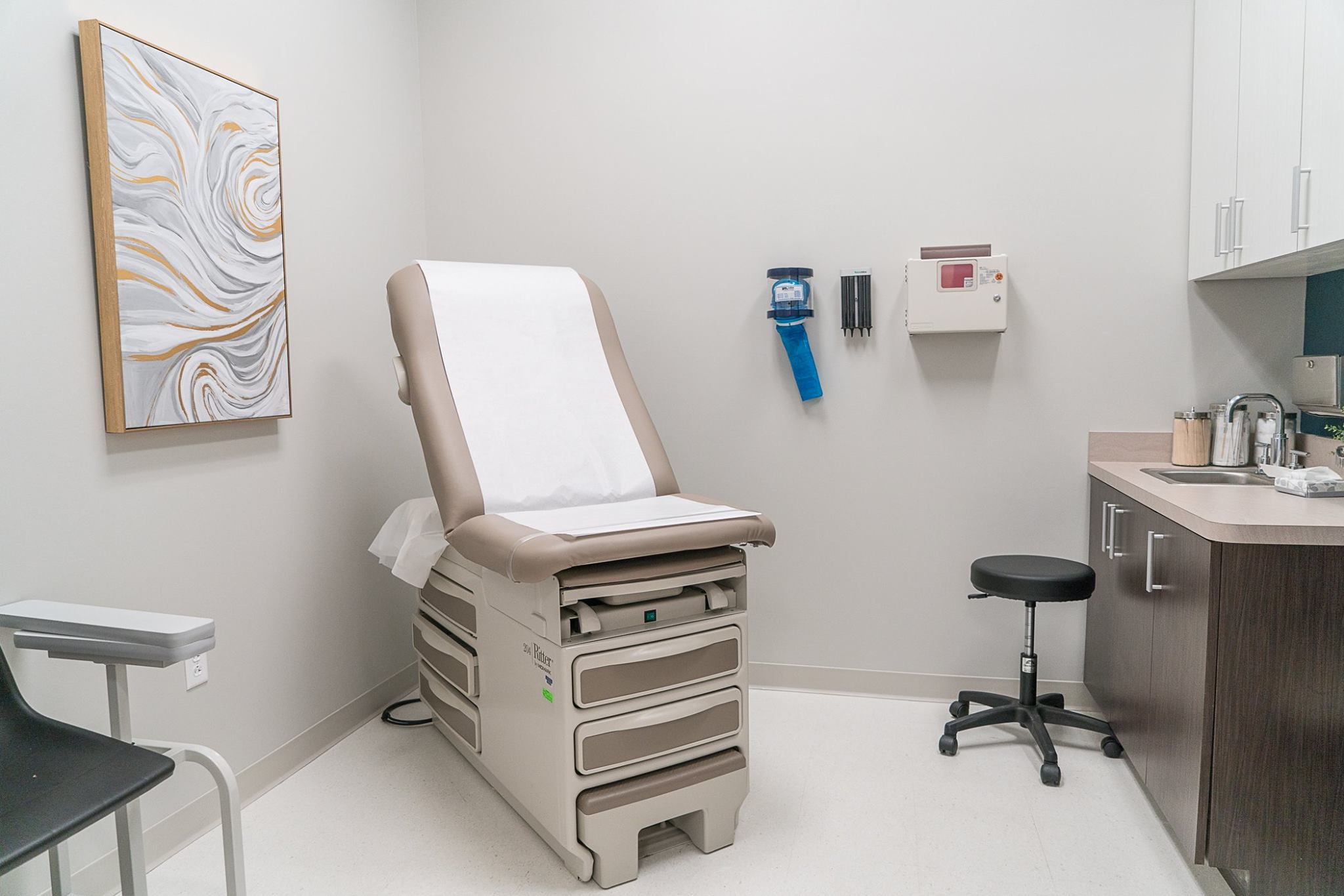Project Description
WHAT IS STREP THROAT
WHAT IS STREP THROAT
A sore throat can be caused by a cold, the flu, strep throat, or tonsillitis.
SYMPTOMS OF STREP THROAT
SYMPTOMS OF STREP THROAT
A common sore throat can be quite painful but is not usually as painful as strep throat.
NEED TO KNOW
NEED TO KNOW
Strep throat is easy to treat, but can lead to complications when left untreated.CAUSES OF SORE THROAT
CAUSES OF SORE THROAT
Your sore throat may come from other causes such as allergies, dryness, irritants, muscle strain, reflux, HIV or tumors
WHAT IS STREP THROAT?
Having a sore throat can be uncomfortable. The pain and burning often associated with a sore throat makes it difficult to eat, drink, talk, and swallow. A sore throat can be caused by a cold, the flu, strep throat, or tonsillitis. While some cases of sore throat are easily treated at home, others require a trip to the doctor’s office. Our urgent care facility offers day, evening, and weekend hours for convenient access to medical professionals when you need it most. Whether you have worsening symptoms when your primary care doctor’s office is closed, or you are just visiting the area, our team is here to assist with all your medical concerns. Contact us or stop by the office to discuss your symptoms and have your sore throat evaluated.
Certain throat illnesses that fall outside the scope of our urgent care services may necessitate referral to an emergency room. If you are experiencing difficulties in breathing, uncontrolled bleeding, or chest pain unrelated to coughing, please call 9-1-1 immediately or seek care at an Emergency facility.
Common Signs and Symptoms of Sore Throat
The most common causes of sore throats are viral or bacterial infections. A common sore throat can be quite painful but is not usually as painful as strep throat. Caused by a viral infection, symptoms of a common sore throat include:
- Pain or scratchy sensations in the throat
- Worsening pain when you swallow or talk
- Difficulty swallowing
- Swollen glands in the neck or jaw
- Swollen, painful, irritated tonsils
- A hoarse or muffled voice
Viruses that cause most sore throats include:
- The common cold
- Influenza (flu)
- Mono (mononucleosis)
- Measles
- Chickenpox
- Croup
When a sore throat is caused by a viral infection, it may also be accompanied by the following symptoms:
- Fever
- Cough
- Runny nose
- Sneezing
- Body aches
- Headache
- Nausea
- Vomiting
- Ear pain
- Jaw pain
Everything You Need to Know About Strep Throat
In many cases, a sore throat is called by a bacterial infection that infects the throat and tonsils. Strep throat is caused by group A Streptococcus bacteria, an extremely contagious bacteria that is spread through airborne droplets when a sick person sneezes or coughs. While most cases are not severe, strep throat can lead to complications when left untreated.
The most common symptoms of strep throat include:
- Severe pain in the throat
- Difficulty swallowing
- Loss of appetite
- Painful, swollen tonsils
- White patches or streaks of pus in the back of the throat or on the tonsils
- Small red spots on the roof of your mouth
- Swollen lymph nodes
- Fever
If you have the signs and symptoms of strep throat, your doctor will swab the back of your throat and tonsils to test for the bacteria. They will use the throat culture to perform a rapid antigen test that can detect strep bacteria within a few minutes. If you test positive for strep, your doctor will likely prescribe an antibiotic to clear the infection. Strep throat is easy to treat, but can lead to the following complications when left untreated:
- Sinus infection
- An infection that travels to the ear, skin, or blood
- Mastoiditis- an infection of the part of the skull behind the jaw
- Rheumatic fever
- Peritonsillar abscess- a pus-filled pocket near the tonsils
- Scarlet fever
- Guttate psoriasis
- Poststreptococcal glomerulonephritis- an inflammation of the kidneys
Other Causes of Sore Throat
In some cases, your sore throat may come from causes other than viral and bacterial infections. These include:
- Allergies- Pet dander, mold, dust, and pollen can irritate and inflame the throat.
- Dryness- Dry air can make your throat feel scratchy, and frequently breathing through your mouth can lead to a dry, sore throat.
- Irritants- Pollutants in the air, such as smoke, chemicals, and other toxins, can cause a sore throat. Additionally, consuming certain foods and drinks can lead to a sore throat.
- Muscle strain- Yelling, talking for long periods, or talking loudly can also cause sore throat.
- Gastroesophageal reflux disease- Commonly referred to as GERD, this digestive system disorder sends stomach acid back into the esophagus, sometimes causing a sore throat.
- HIV infection- A more severe cause of sore throat is the HIV infection, often accompanied by flu-like symptoms.
- Tumors- Tumors of the throat, tongue, and voice box can also cause a sore throat.
When to Visit University Urgent Care
If you have a painful sore throat with persistent symptoms, it may be time to visit University Urgent Care for treatment. Our team will perform a physical exam to diagnose the cause and give you a treatment plan that helps alleviate symptoms and get you feeling better fast. If any of the following symptoms accompany your sore throat, your case may be severe. It’s essential to come into University Urgent Care as soon as possible if you have any of the following problems:
- A severe sore throat that is intolerable
- A sore throat that lasts longer than a week
- Difficulty swallowing
- Difficulty breathing
- Difficulty opening your mouth
- Joint pain
- Earache
- Rash
- Fever higher than 101°F
- Blood in your saliva or phlegm
- A lump in your neck
- Hoarseness lasting more than two weeks
- Swelling in the face or neck
For more information, visit our clinic to be seen by a qualified, compassionate member of our team.
University Urgent Care provides strep throat treatment for children aged 2 and up, catering to a wide range of medical needs. Families can either walk in for immediate care or conveniently schedule an appointment online, ensuring prompt attention to their child’s health. Learn more about our urgent care services for kids here.






